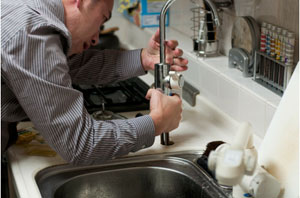In this article, Chris Matenaers from Cromwell takes a closer look at how sole traders can reduce costs and protect profitability.
Working as a sole trader has lots of advantages: you get to pick and choose your jobs, you don't have to worry about the responsibilities of being an employer, and you get to retain all the fruits of your labour. However, because you are your own business, it falls squarely to you to make sure that your jobs are returning a profit and that you're protecting your trade from pitfalls.
Putting aside some time to evaluate all the aspects of your work can often reveal ways in which you can cut costs without reducing the quality of your work, as well as safeguard against potential losses.
With this in mind, let's have a look at four ways you can reduce your costs and protect your profitability. Read on to find out more.
Plan ahead and always have the right tools for the job
Before you start a job, it's important that you have the right set of tools to get started quickly and stay on schedule. To make this easy, try to identify a core set of equipment that you always know you are going to use and make sure you always have it to hand.
Try to get a handle on the work before you begin, as you'll probably be able to work out if there's a task that is going to need a specialist tool that you don't keep in your regular set. This way, you can arrive equipped to tackle the problem. By coming prepared and planning ahead, you'll soon find that you can finish work quickly and potentially fit more into your schedule.
Work out your own ways of eliminating waste from your work
Look for ways that you can reduce waste when you are working, as this can help to bring down both costs and lead times for jobs. For example, a plumber could re-use lengths of pipework between projects rather than throwing excess supplies away, but still charge for the parts and labour. Waste would also be reduced from job to job, minimising the time and cost of disposal. Similarly, if a plumber could identify that pre-fabricated pipework would work just as well as individual pieces, it would take less time to install and the overall length of the job would be reduced.
Take precautions to prevent theft
Over the last year, tool theft in the UK has risen by over 30%, according to figures from Simply Business, indicating there is more risk than ever from opportunistic thieves. If your tools are taken, it can incur huge costs replace them, not to mention the potential delays or loss of business that could take place.
To reduce the risk of your tools being taken, you need to make life as hard as possible for potential thieves. As vans are often the primary target, your first step should be to remove any equipment from your vehicle whenever possible, especially overnight. If it's not possible to transport your gear out every night, make sure that your tools are out of sight, your doors and windows are locked, and you have a working alarm installed. You could also install a CCTV camera outside of your home, which can act as both a deterrent and evidence, should the worst happen.
Always follow health and safety guidance
Your number one asset as a sole trader is your own health, because an injury or illness can put you out of action and cause a loss of earnings. By making sure that you follow any guidance when it comes to health and safety, you can minimise the risk of a something happening that will harm your profitability.
The Health and Safety Executive has a tonne of specialist guidance available that is well worth a read, with advice for almost every industry out there. They also have guides to specific topics, such as working at a height or working with gas, which you should definitely take a look at if you know you will be undertaking such tasks as part of an upcoming project.
Take the time to work these four tips into your work as a sole trader and you will be able to reduce your costs and protect your business at the same time.



Add new comment